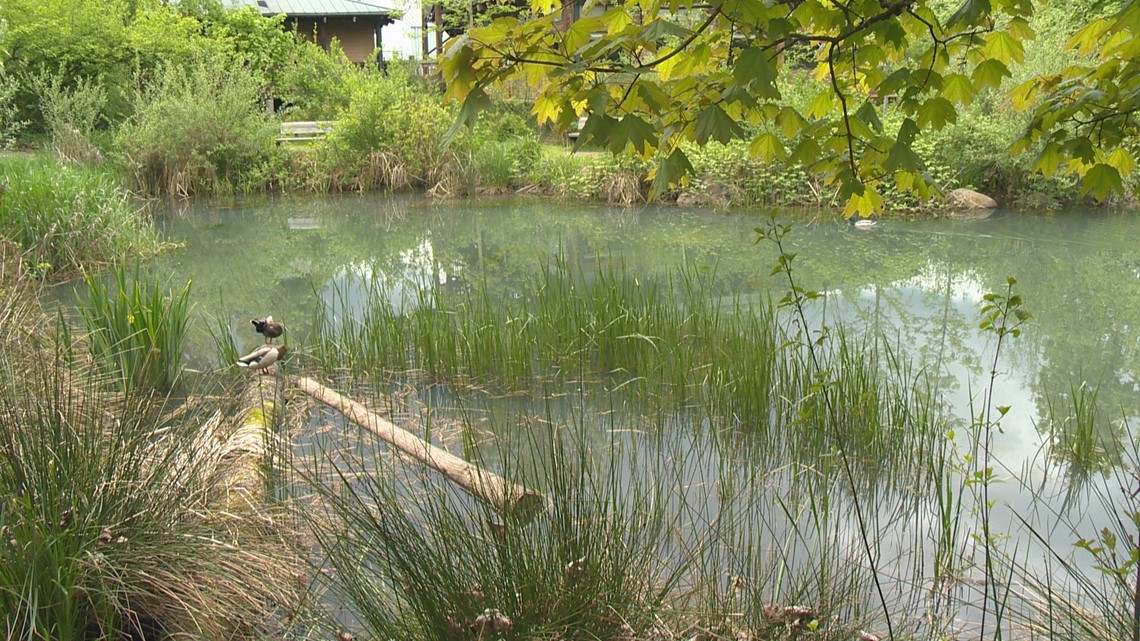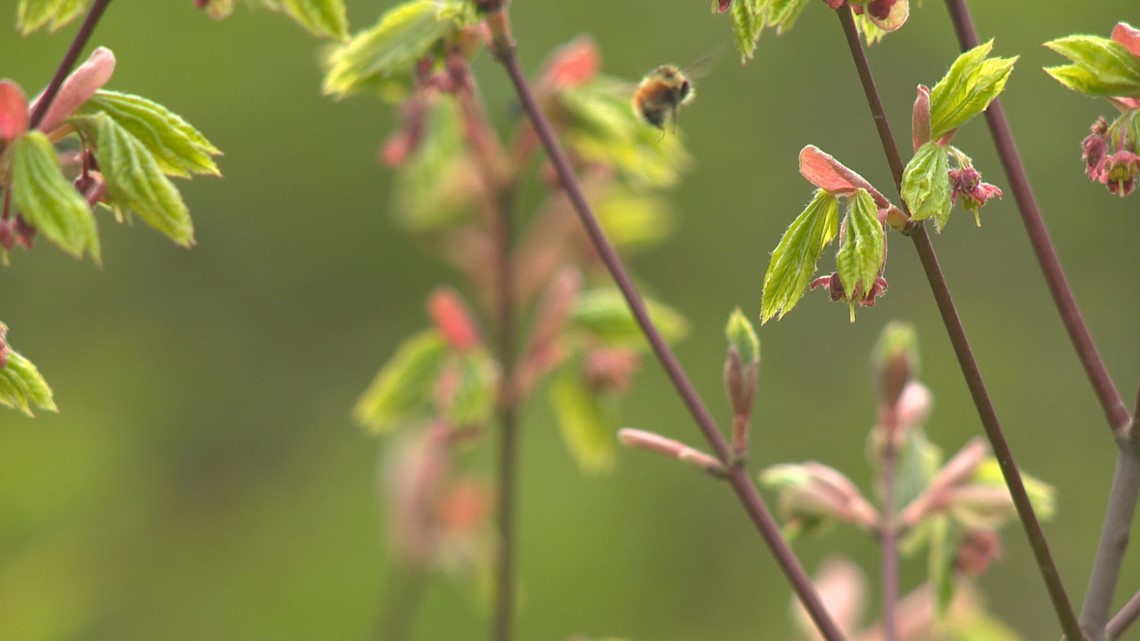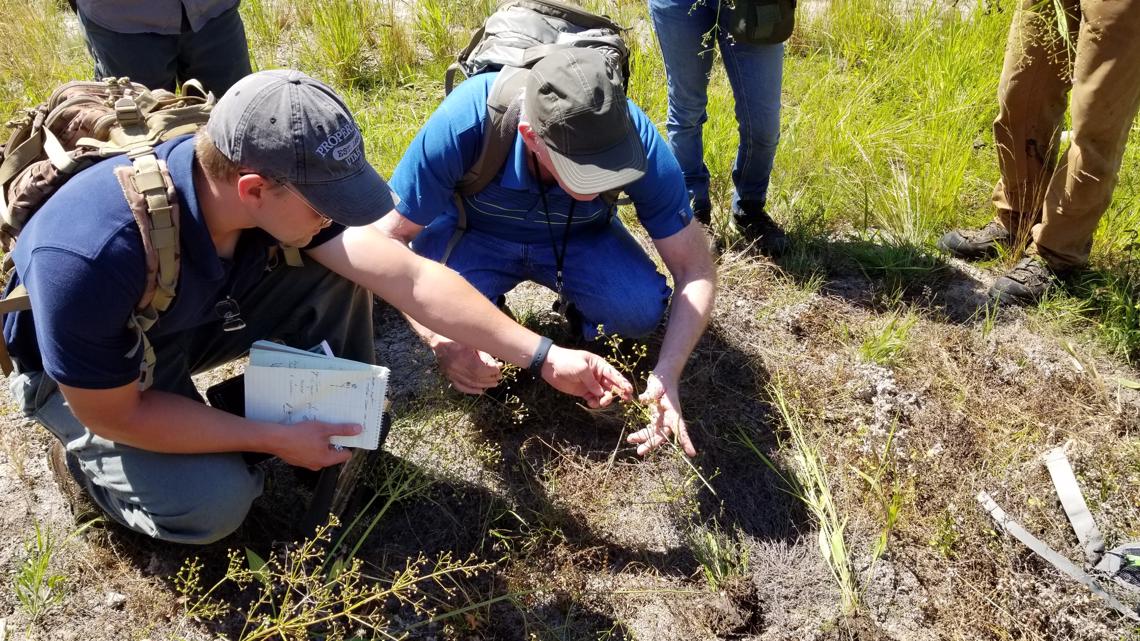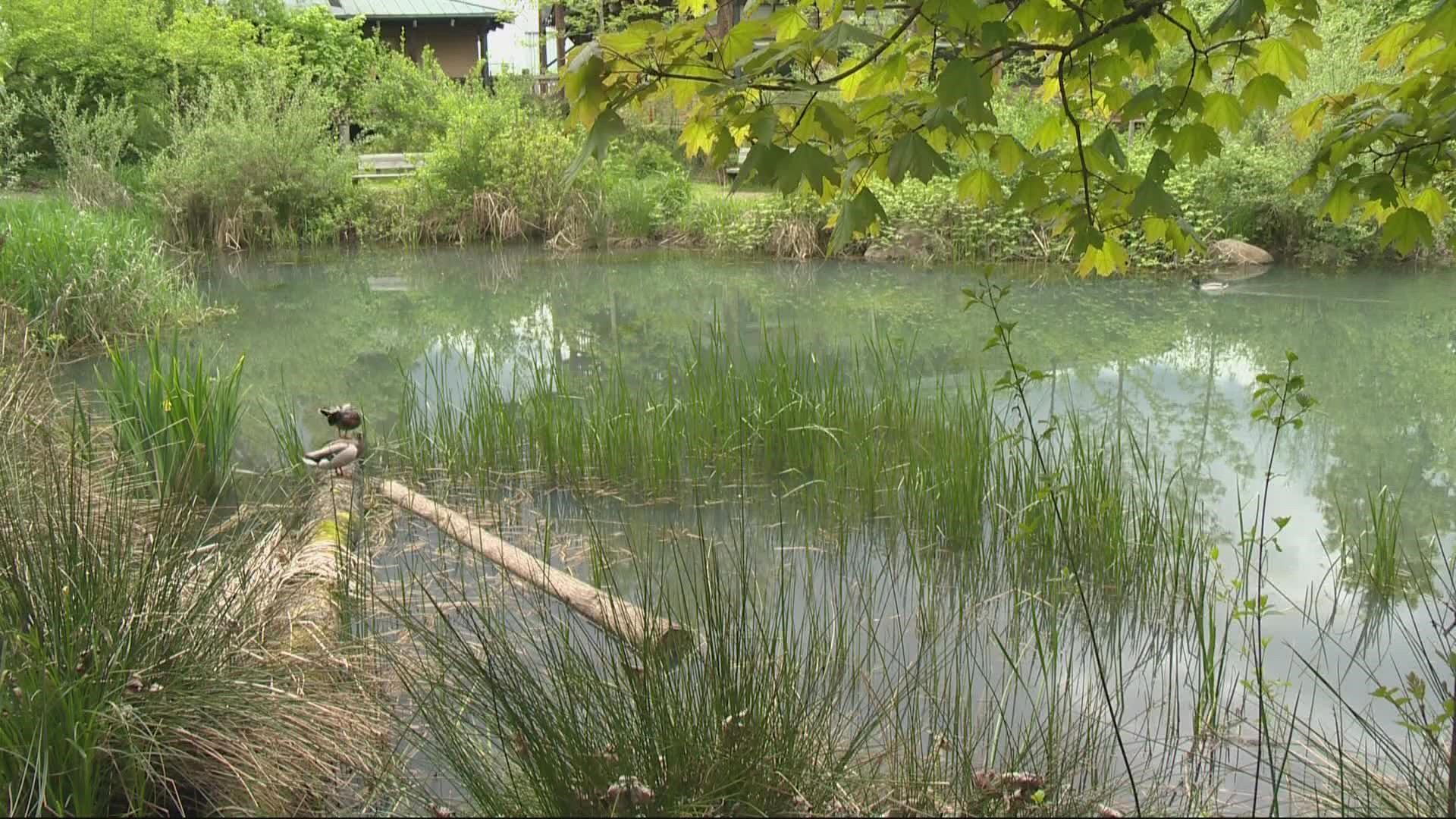OREGON CITY, Ore. — In this week's Let's Get Out There, we head to the Environmental Learning Center at Clackamas Community College. A five-acre wetland sits on the Oregon City campus.
Tucked into the Oregon City campus of Clackamas Community College are five acres of wetland.
“Wetlands, they're just beautiful places,” said Gail Shaloum of Clackamas Water Environment Services. “They've got everything that a natural area needs, everything a critter needs to survive…and every animal needs water, right?”
Shaloum is a natural resources scientist and is part of a partnership with the college’s Environmental Learning Center (ELC). Renee Harber is the Center’s program director.


“It's a wonderful place for community members just to come and hang out as well as students and other staff on campus…and we see them pretty regularly,” said Harber.
It’s a wetland site, and it may be small, but it serves a very important purpose.
“There are several benefits of wetlands,” Harber said. “One is that they serve as a nursery for wildlife…It also helps to cleanse the water.”
Plants along with microbes in the soil pull pollutants and sediment out of storm water after it flows into the wetland. Natural filtration makes the water clear when it runs downstream. The mission is shared by Clackamas Water Environment Services.


“We take dirty water and make it clean at our wastewater treatment plants,” Shaloum said. “We also manage runoff from storm water and work really hard to try to improve the health of our watersheds.”
On May 19 and 20, they are sponsoring the ELC’s Wetland Plant Identification Workshop. It will consist of a lecture on the first day and a field practicum on the second.
Participants will learn how to:
- Accurately identify common wetland plants in the region
- Identify selected plant families
- Properly use botanical keys to identify plants
- Identify tools to aid in plant identification


“It's designed primarily for professionals, those people who work on wetland protection or maintenance and also for people who do wetland delineations,” said Harber. “A delineation is just the process that you go through to figure out whether the site is a wetland or not.”
Hundreds of plant species can be found on wetland sites. But what’s the importance of the workshop if you’re not working on wetland protection? Well, the workshop intends to protect the wetlands we still have.
“We have just a fraction of wetlands left than what there used to be before the area was developed,” said Shaloum. “So those that we have left are really valuable and really important to preserve.”
With the many physical and mental benefits of getting out into nature, it’s a great time to get out to a nearby wetland and enjoy it.
Currently, the ELC only offers this course to professionals in fields related to environmental science and wetland protection.
Let's Get Out there airs once a week on KGW's 4 p.m. newscast and The Good Stuff, which airs Monday-Thursday at 7 p.m. We're including viewer photos for this series. You can text your photos to 503-226-5088 or post them on the KGW Facebook page.

